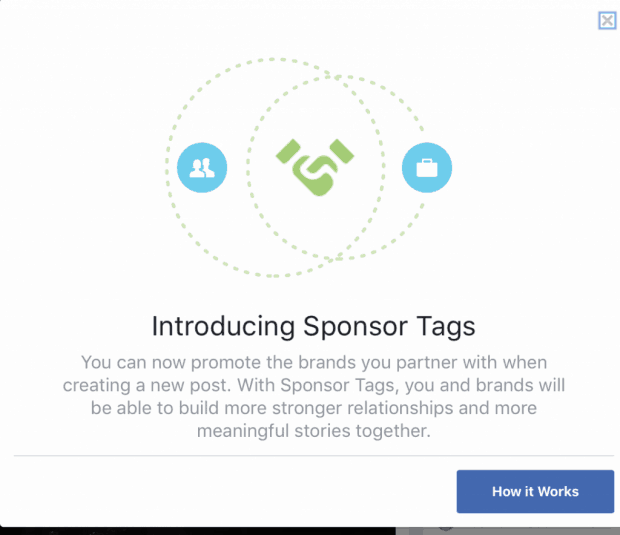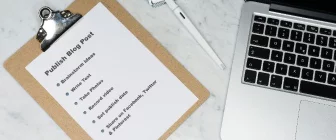
In late 2016, Facebook announced a key change to its branded content platform.
Companies have been able to promote branded content through the Facebook pages of bands, media outlets and celebrities for some time, but not through private profiles. This changed with the October update; Facebook announced that verified private profiles could promote branded content to harness the power of influencer marketing. Facebook also added a series of new marketing analytics to a feature called a Facebook sponsor tag.

Here’s a breakdown of how it works and just how both parties involved benefit from this major step forward in Facebook’s marketing policy.
New Facebook Sponsor Tags
When you create content promoting a specific product or brand as the owner of a verified profile, you’re given an option to click on a handshake icon and tag the brand directly in the post. This new feature, which is called a Facebook sponsor tag, works for Facebook’s whole range of posting options from simple text posts to interactive live streams.
When brands are tagged, Facebook provides marketers with the ability to quantify the reach and ROI for sponsoring influencer posts. A brand’s marketers can view their marketing metrics such as reach and unique engageements on individual posts and are given the option to boost or share branded content to extend customer interaction possibilities.
For example, a brand might approach an individual social media influencer asking for a product promotion. Instead of paying the person via an independent interaction and then letting him promote the brand, companies pay through Facebook’s new platform, and the influencer would tag the page for the company using the new handshake icon.
As you can see, the quick summary of a branded post’s reach includes key insights that are crucial to deciding whether or not to keep spending a brand’s marketing budget in a specific direction.
Who Benefits?
In short, everyone. Marketers are given wider options to promote their brands to new audiences, while influencers are given a clearer way to monetize their popularity, a method Instagram has already used effectively.
- Influencers are given new options to market themselves. It’s a sort of symbiotic relationship, really. Notable figures with verified profiles who previously had preferred other social platforms where making money off of their public image was simpler will now use Facebook more often.
- Marketers are able to better understand their reach with the Sponsor Tags feature. Facebook intends to make its platform more friendly to brands by expanding the parameters of their marketing ability and adding a toolkit that makes them able to harness the power of word-of-mouth in a major way.
In essence, Facebook has generated a ton of buzz with its new branded content policy. It fosters a more friendly environment for brands and marketers alike and facilitates marketing transactions that are clearly separated from other posts on the platform so that Facebook benefits, their B2C users benefit and the community benefits.
